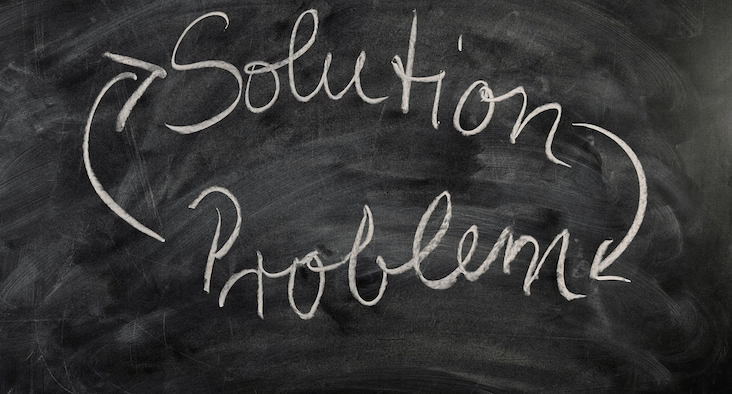While there are bound to be some mistakes and errors made as you run your business, making excuses for them will only lead to more problems. Keep reading to learn how problem solving is essential to the success and productivity of your small business.
When a mistake occurs, have you found yourself placing blame? Do you immediately become defensive and start pointing the finger? If you do, you are not alone, but you are also not doing anything to actively remedy the situation at hand. To become more productive, efficient and effective in running your business, it is time to cut out the excuses and start taking action.
Why we make excuses
Errors and mistakes in the workplace can be costly and embarrassing. When the responsibility lies on our shoulders, it is natural to want to defend ourselves. As business owners, we take pride in our work, and when mistakes are made, it casts doubt over our competency in the eyes of our employees and our customers. It seems that all of our hard work will be flushed away by one mistake, thus prompting us to make excuses for the misgiving.
Unfortunately, excuses only function to waste everyone’s time, including your own. Often, the receiving party is not interested in the excuse, they simply want to know what problem solving will be done to resolve the situation.
Also on StartupNation.com: The Ultimate Startup Hack to Boost Productivity
How to avoid making excuses
While it is natural for us as humans to explain away our actions or inactions that lead to a mistake, it is ultimately detrimental to business and productivity. To avoid excuses, try the following problem solving techniques.
- Find the source of the error, but don’t place blame. Finding the underlying reason for an error will help you avoid the problem in the future, but be careful not to point the finger when you discover the source. This will only lead to negativity and wasted time. If you or someone else are specifically to blame, don’t dwell on the fact that the mistake was made; instead, focus your energy on forgiving it and moving forward. After all, next time it could be your mistake, and you would hope they wouldn’t immediately throw you under the bus!
- Brainstorm the best solution. While you may want to immediately jump into action to fix the problem, take a breath and figure out the best path first. This way, you will not make the issue worse with an ineffective solution or knee-jerk overreaction. Consider all your options rationally, and try to come up with ideas that have a low-impact worst case scenario. Be strategic, but don’t take a major risk unless you’re almost positive it will work out.
- Be honest. When addressing the problem with the aggrieved party, admit that a mistake was made and immediately offer a solution. Don’t try to be defensive or justify the mistake, just show them that you acknowledge it happened — sometimes, this admission alone will earn you some recovery points — you’re genuinely sorry, and the problem will be fixed promptly. Chances are, they aren’t interested in how the mistake happened, they are interested in the final product. Additionally, they will be impressed with your honesty and quick resolution of the issue without their need to “catch” you or tell you how to fix it. Just be sure you know the difference between a problem you truly can solve on your own and when it’s time to call in additional help.
When running a business, it is inevitable that mistakes and errors will occur. What is important, however, is how you react to the problem. Focus first on problem solving, and when everything is resolved, reflect on what went wrong. Don’t kick yourself too hard; we all make mistakes. (Take it from me, I’ve made my fair share of them!) Look at it as an opportunity to learn, and you may even end up a little grateful for the experience. After all, the mistake you make today is one less you could make tomorrow.






